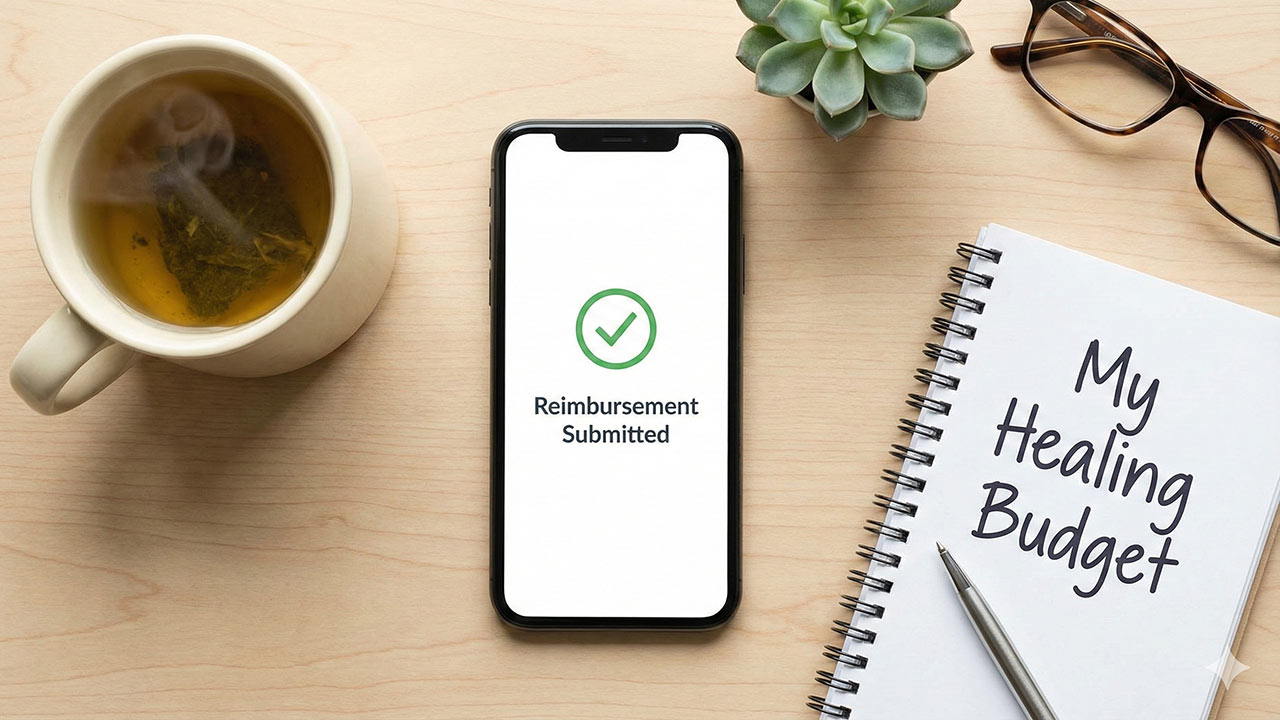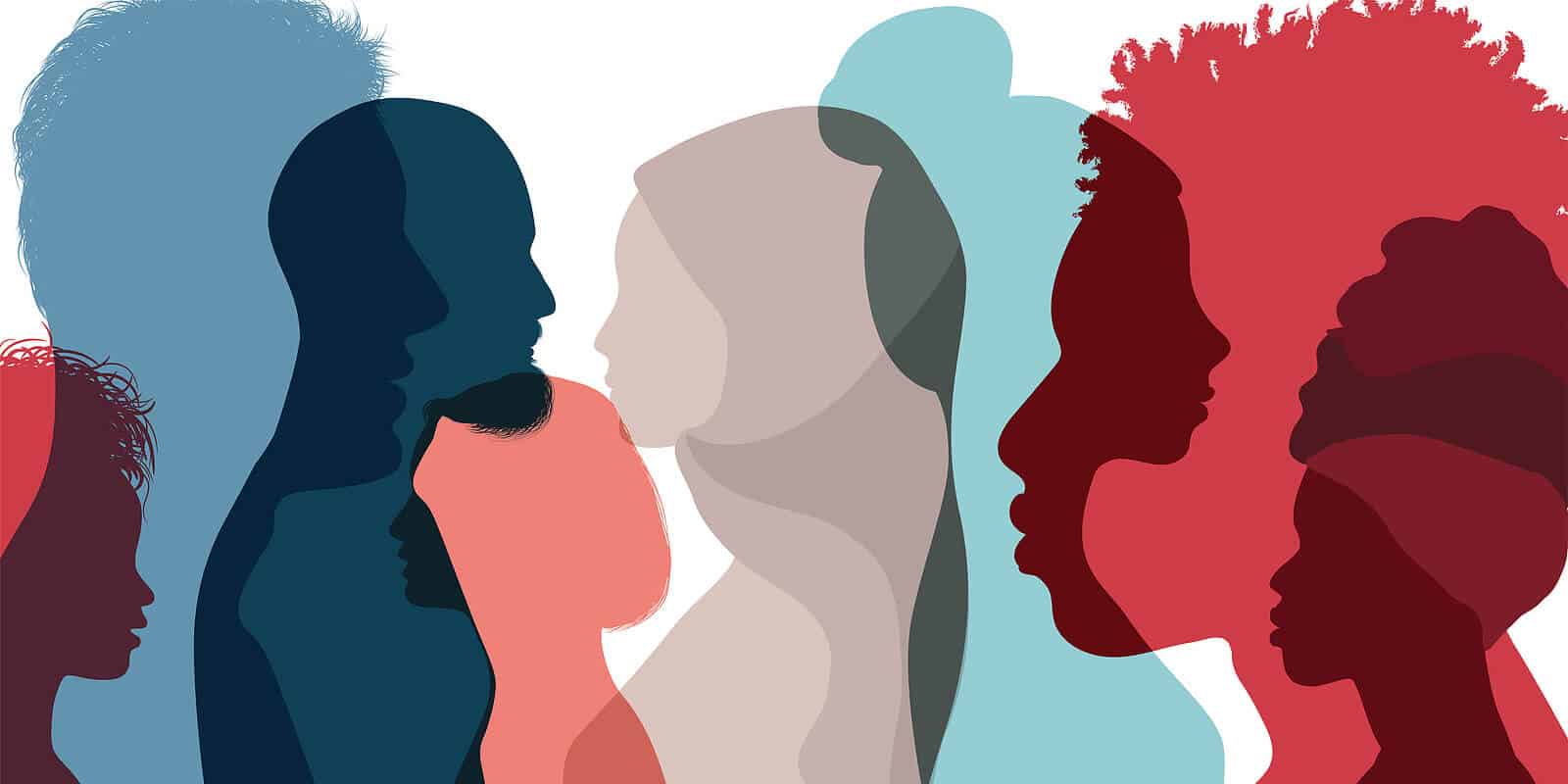Quick Answer to ‘Find Inclusive Therapists’:
1. Understand What Inclusive Therapy Is.
2. Identify Your Specific Needs and Preferences.
3. Choose from a Directory of Inclusive Therapists such as MyWellbeing, GAYLESTA, or Open Path Psychotherapy Collective.
4. Evaluate Therapists Based on Their Training, Experience, and Approach to Inclusivity.
5. Consult with Potential Therapists to Assess Comfort Level and Compatibility.
Are you looking for mental health support that recognizes and celebrates your unique identity and experiences?
Intrinsic to our mission at Resilient Mind Counseling, is the fundamental belief that everyone deserves accessible, equitable, and empathetic mental health care. Our aim is to promote a sense of belonging within a community that has historically faced discrimination and stigmatization. That’s where inclusive therapy comes in.
Inclusive therapy is a holistic approach to mental health care. It is not merely about providing services but it also ensures these services are accessible to those who have historically been unable to access them due to factors like race, gender, sexual orientation, or neurodiversity. Inclusive therapists are trained to recognize their own biases, adapt their therapeutic strategies, respect their clients’ identities, and create safe, welcoming spaces for therapy. This new wave of therapy offers hope and healing by harnessing the power of understanding, empathy, and respect at every stage of the therapeutic journey.
At the heart of this approach is the principle of affirmation. Inclusive therapy recognizes, validates, and supports the identities and experiences of each individual. It acknowledges the unique challenges that different communities face and tailors strategies to meet these specific needs, fostering resilience and promoting mental wellbeing.

What is an Inclusive Therapist?
An inclusive therapist is a mental health professional who offers accessible and equitable care to every patient, regardless of their background. They aim to make services, like counseling, accessible to those who have historically been unable to access them due to systemic barriers like race, gender, sexual orientation, or socioeconomic status. The goal is to provide a therapeutic experience that respects and values the client’s unique experiences and identities.
Role of an Inclusive Therapist
The role of an inclusive therapist is multifaceted. They strive to create a safe and understanding environment for their clients. This involves understanding their own biases and ensuring they do not impact the therapeutic process. They adapt their therapeutic approach to meet the unique needs of each client, respect their identities, and engage in ongoing learning and development to ensure they are providing the most effective care.
Inclusive therapists also work to create a welcoming space that helps clients feel safe and comfortable sharing their experiences. They solicit feedback and evaluation from their clients to ensure they are meeting their needs and expectations.
The Need for BIPOC Therapists
BIPOC therapists are mental health professionals who identify as Black, Indigenous, or People of Color. They play a crucial role in providing culturally competent and inclusive counseling services to individuals from diverse racial and ethnic backgrounds.
BIPOC individuals often encounter specific challenges when it comes to mental health, primarily due to systemic and cultural factors. This can include lack of representation, racial and cultural stigma, systemic barriers, racial trauma, and the risk of misdiagnosis and bias.
BIPOC therapists can help address these challenges by bringing their cultural competence and shared experiences to the therapeutic process. Their presence in the mental health field helps address the lack of representation and promotes greater access to therapy for individuals who may benefit from working with a therapist who shares a similar cultural background.
At Resilient Mind Counseling, we understand the importance of inclusive therapy and the crucial role that BIPOC therapists play. We are committed to creating a safe, supportive, and inclusive environment where all clients feel seen, heard, and respected.
How to Make Therapy More Inclusive
Inclusive therapy is about more than just welcoming all clients. It’s about actively adapting our approach to ensure that everyone feels seen, heard, and respected. At Resilient Mind Counseling, we prioritize several key strategies to create a more inclusive therapeutic space.
Understanding Your Own Biases
First and foremost, we must understand and confront our own biases. This involves both acknowledging and actively addressing any unconscious bias that could impact therapy. We strive for self-reflection and self-awareness, which are crucial for fostering an environment of fairness and understanding.
Respecting Your Clients’ Identities
Respecting our clients’ identities is fundamental. This means valuing their unique experiences, perspectives, and cultures. We aim to understand the world from their viewpoint, validating their feelings and experiences. We strive to respect all aspects of our clients’ identities, from race, ethnicity, and religion to sexual orientation and gender identity.
Adapting Your Therapeutic Approach
Our therapeutic approach should be as unique as our clients. We adapt our strategies to the specific needs and experiences of each client. This might involve integrating their cultural beliefs into therapy or using techniques that resonate with their experiences.
Creating a Safe and Welcoming Space
Creating a safe and welcoming space is paramount. This involves both physical and emotional safety. Our clients should feel comfortable expressing themselves without fear of judgment or rejection. We strive to foster an environment where clients can explore their thoughts and feelings freely.
Seeking Ongoing Learning and Development
We are dedicated to ongoing learning and professional development. This includes staying informed about the latest research and developments in the field of inclusive therapy. We also engage in regular training and education to enhance our skills and knowledge.
Soliciting Feedback and Evaluation
Finally, we believe in the power of feedback. We regularly solicit feedback from our clients to ensure that our approach aligns with their needs and expectations. We also evaluate our own performance and make necessary adjustments to provide the best possible care.
As inclusive therapists, we aim to create a therapeutic environment where all clients feel valued, respected, and understood. We believe that this approach is key to facilitating effective therapy and promoting positive mental health outcomes. At Resilient Mind Counseling, we are committed to fostering inclusivity in all aspects of our practice.
Top 10 Inclusive Therapists
If you’re on the hunt for inclusive therapists who align with your unique needs and values, we’ve got you covered. Here are the top 10 inclusive therapists you might want to consider.
MyWellbeing
MyWellbeing is more than a directory; it is a match-making platform that connects therapy-seekers with the right therapist. Their free support group for BIPOC practitioners and periodic free and low-cost support groups for marginalized groups are worth considering.
GAYLESTA
GAYLESTA, the Psychotherapist Association for Gender & Sexual Diversity, provides therapist referrals and education services to the LGBTQ+ communities. Its member directory connects therapy seekers to therapists based on location and areas of expertise.
Open Path Psychotherapy Collective
The Open Path Psychotherapy Collective is a nonprofit network dedicated to providing affordable mental health services in-person and virtually. Their nationwide network of therapists provides a wide selection for therapy seekers.
Dive In Well
Dive In Well offers digital workshops, consulting, and training to empower both individuals and businesses. They focus on diversity and inclusion, fostering access, and practicing allyship.
Therapy for Black Girls
Therapy for Black Girls is an organization focused on the mental wellness of Black women and girls. Their therapist directory matches therapy seekers with culturally competent therapists who understand the unique challenges of being a strong, black woman.
National Association of Black Social Workers
The National Association of Black Social Workers (NABSW) empowers people of African ancestry through advocacy, human services delivery, and research. They offer networking opportunities, discounted pricing for conferences, and exposure on their website to mental health practitioners.
Therapy in Color
Therapy in Color helps therapy seekers find the right therapist, connecting Black, Indigenous, and People of Color with culturally aware therapists. Their online directory includes therapist profiles that can be filtered by location, language, LGBTQ+ affirming, and other parameters.
National Queer and Trans Therapists of Color Network
The National Queer and Trans Therapists of Color Network is a healing justice organization committed to transforming mental health for queer and trans people of color. They offer a directory of mental health practitioners across the country.
Inclusive Therapists
The Inclusive Therapists directory offers a safer, simpler way to find a culturally responsive, social justice-oriented therapist. They feature therapists who offer reduced-fee services to support access to care, especially for marginalized communities.
Ethel’s Club
Ethel’s Club is a social and wellness platform designed to celebrate people of color. They offer access to therapists and wellness experts who understand the experiences of these communities.
Each of these therapists has unique strengths and specialties. We encourage you to explore these options and find the one that resonates with you the most. The goal is to find an inclusive therapist who understands your unique experiences and can provide the support you need to thrive.
How Inclusive Therapists Work
Inclusive therapists aim to support and affirm clients from diverse backgrounds and identities, offering a safe and supportive environment for mental health support. Here, we will guide you through the key principles that underpin their work.
Simplifying Therapy for Marginalized Communities
Inclusive therapists aim to make therapy simpler and safer for people in marginalized communities. Understanding that larger directories can be overwhelming, inclusive therapists work to streamline the process, focusing on the quality of options rather than quantity. This means that you can save time from scrolling through crowded directories and instead focus on finding a therapist who aligns with your needs and experiences.
Celebrating and Supporting Intersectional Identity
Inclusive therapists recognize that marginalized communities face a higher risk of neglect or harm. Therefore, they celebrate and support your full intersectional identity, affirming your unique experiences and challenges. This means that your therapist will honor your identity in all its complexity, recognizing the ways in which different aspects of your identity intersect and shape your experiences.
Prioritizing Cultural Responsiveness and Identity Affirmation
Inclusive therapists prioritize cultural responsiveness and identity affirmation in their practice. They are committed to checking their privileges and being culturally responsive. This means that they strive to understand and respect your cultural background and experiences, using this understanding to inform their therapeutic approach.
Transparency and Power Sharing in Therapy
Inclusive therapists also value transparency and power sharing in therapy. They believe in sharing their own values and identities, fostering an environment of mutual respect and understanding. This commitment to transparency helps to create a therapeutic relationship that is based on equality and mutual respect.
Offering Low-Cost Services
Recognizing the financial barriers that can prevent individuals from accessing therapy, inclusive therapists offer low-cost services and sliding scale options. This means that therapy can be accessible to you, regardless of your financial situation.
At Resilient Mind Counseling, we’re committed to embracing these principles in our own practice. We understand the importance of finding a therapist who respects and affirms your identity, and we’re here to support you on your journey towards mental well-being.
Conclusion
The Importance of Finding the Right Inclusive Therapist
Finding the right therapist is a key step in your mental health journey. It’s crucial to find a professional who understands your unique needs and experiences and can provide a safe, supportive, and non-judgmental space for you to explore your thoughts and feelings. This is where the importance of inclusive therapists comes into play. They are trained to respect and affirm your identity, providing an environment that is welcoming and understanding of all backgrounds and experiences.
At Resilient Mind Counseling, we believe in the power of therapy to transform lives, and we’re committed to helping you find the right therapist who can guide you on your path to improved mental well-being.
How Inclusive Therapy Can Improve Mental Health Outcomes
Inclusive therapy can significantly improve mental health outcomes by providing culturally competent and sensitive care. It respects and validates your identity, making you feel seen and understood. This kind of validation can have a significant effect on your sense of self-worth and overall mental health.
Moreover, inclusive therapy adapts its therapeutic approach to suit your unique needs and experiences, promoting self-acceptance and resilience. It can help address mental health issues that are often exacerbated by social stigma and discrimination, such as anxiety, depression, trauma, and stress.
Encouraging More Therapists to Embrace Inclusivity
While the need for inclusive therapists is evident, there is still a long way to go in making therapy more inclusive and accessible to all. It’s critical for more therapists to understand their own biases, respect their clients’ identities, and adapt their therapeutic approaches to be more inclusive. It involves creating safe and welcoming spaces for all clients, seeking ongoing learning and development, and soliciting feedback and evaluation to continually improve their services.
At Resilient Mind Counseling, we are doing our part to promote inclusivity in therapy. We strive to respect and affirm the identities of all our clients, adapt our therapeutic approaches to meet their unique needs, and create a supportive and welcoming environment for everyone.
We also believe in the importance of ongoing learning and development. We continually seek opportunities to expand our knowledge and skills, enabling us to provide the best possible care to our clients. We welcome feedback and evaluation, using it as a tool to continually improve our services.
In conclusion, finding the right inclusive therapist is a vital step in your mental health journey. At Resilient Mind Counseling, we’re here to support you every step of the way, providing culturally competent, affirming, and inclusive therapy services. We encourage more therapists to embrace inclusivity, helping to create a mental health care system that truly serves everyone. To learn more about our approach to therapy, please visit our blog or contact us to schedule a consultation.














